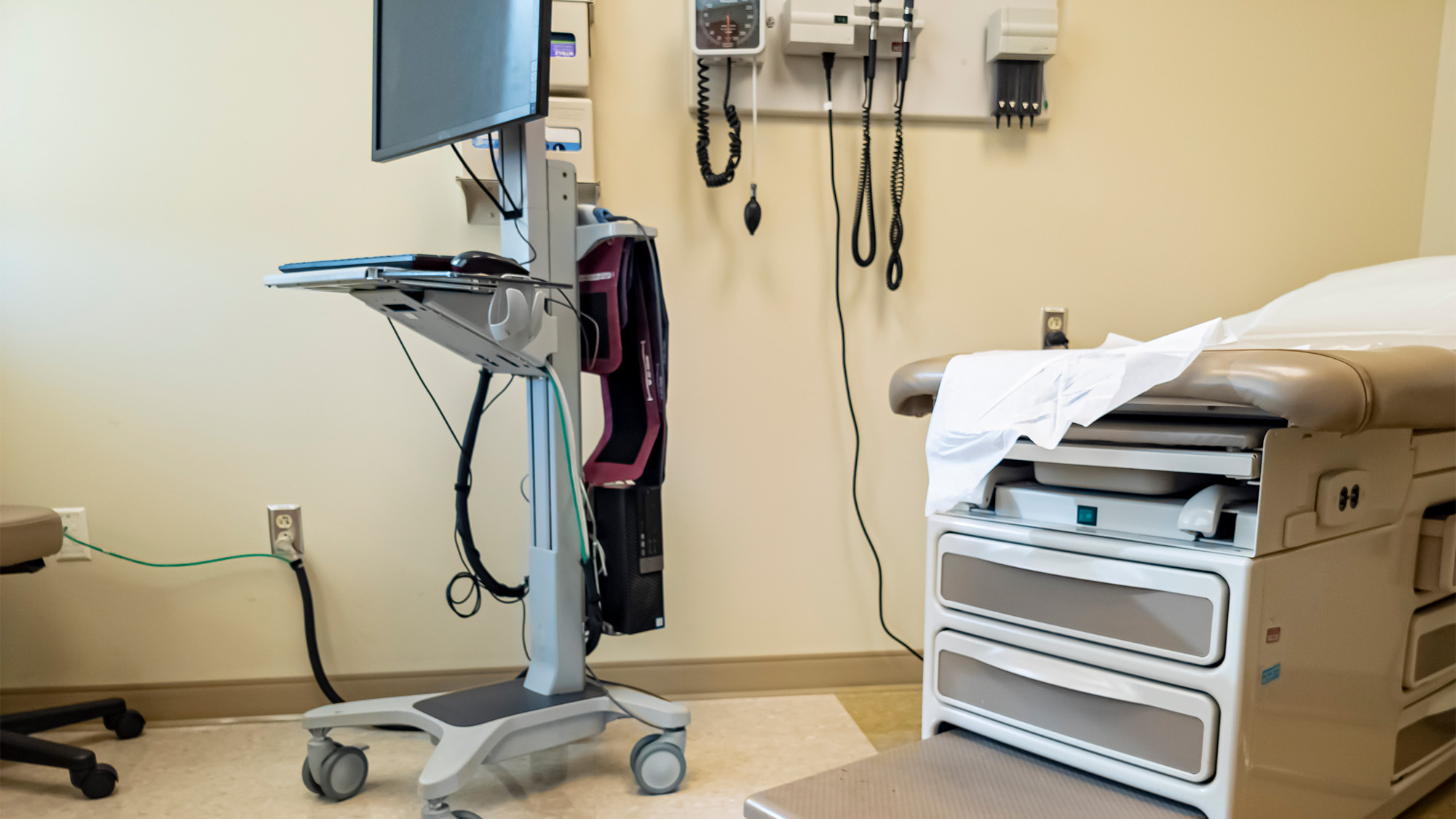School of Nursing AHEC Scholars Gain Critical Clinical Experience
(March 28, 2024) — Working in underserved communities through the Area Health Education Center (AHEC) Scholars Program is delivering a lasting impact for many nursing students who often decide to seek out these communities when they graduate. The School of Nursing students gain exposure to diverse patient populations, conditions and concepts that they would not have learned about otherwise, making it a valuable opportunity.
A longitudinal program with clinical, didactic and community-based activities, the AHEC Scholars Program is a national program for students interested in the health professions who want to gain additional knowledge and experience in underserved settings in urban and rural underserved settings.
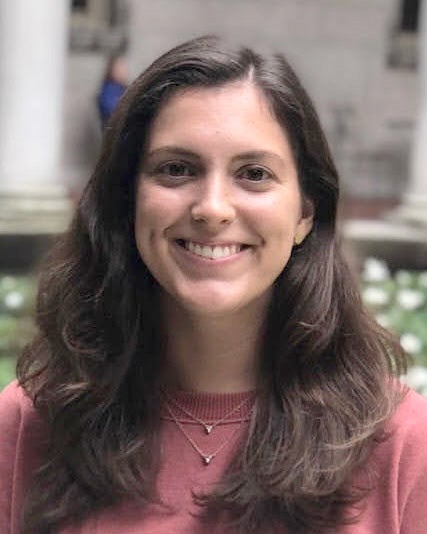
Dana Bulik (G’24), BSN, RNC-OB
“I found my experiences working in a variety of clinical sites to be highly rewarding and will help me to become a more conscientious, well-rounded compassionate provider in the future,” said Dana Bulik (G’24), BSN, RNC-OB, a student in the women’s health nurse practitioner program who worked at Unity Healthcare in Washington, DC, as an AHEC Scholar.
At Georgetown, AHEC is based in the School of Medicine’s Department of Family Medicine, though the AHEC Scholars Program is open to students at Georgetown’s medical and nursing schools, as well as the medical schools at Howard University and George Washington University.
Clinical and Didactic Learning
To participate in the program, AHEC Scholars complete 80 hours of clinical, community-based or experiential experience at an AHEC location such as a federally qualified health center (FQHC). The bulk of Georgetown’s nursing students are distance-based learners, and the program allows them to complete their work at any FQHC in the U.S.
AHEC Scholars also complete 80 hours of didactic work. The clinical and didactic experiences cover six core topics including interprofessional education, behavioral health integration, social determinants of health, cultural competency, practice transformation, and current and emerging health issues.
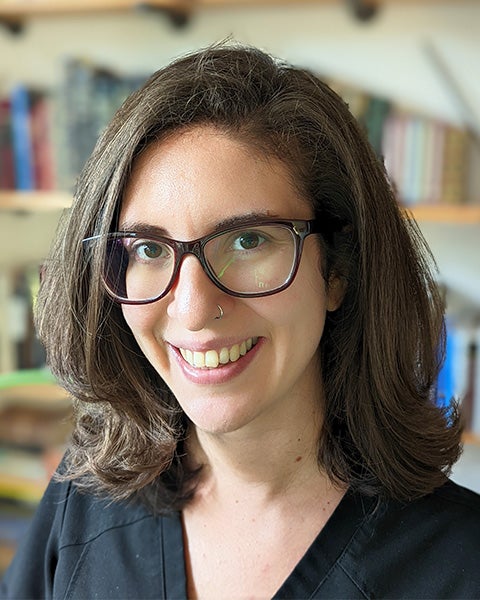
Emily Forsythe (G’25), BSN, RN
To fulfill the didactic requirement, Emily Forsythe (G’25), BSN, RN, participated in webinars and listened to several audiobooks and podcasts covering perinatal depression, food and health inequity, climate change and medicine, the political determinants of health, and more.
“There were so many things I learned from the didactic material,” said Forsythe, who is pursuing a nurse midwifery/women’s health nurse practitioner degree online. “There’s a lot of flexibility with how you get those hours.”
“Finding the ways to work the didactic part into my day was worth it,” she added. “Having that extra insight into different areas is just going to benefit me going forward.”
Preparing Future Health Care Providers
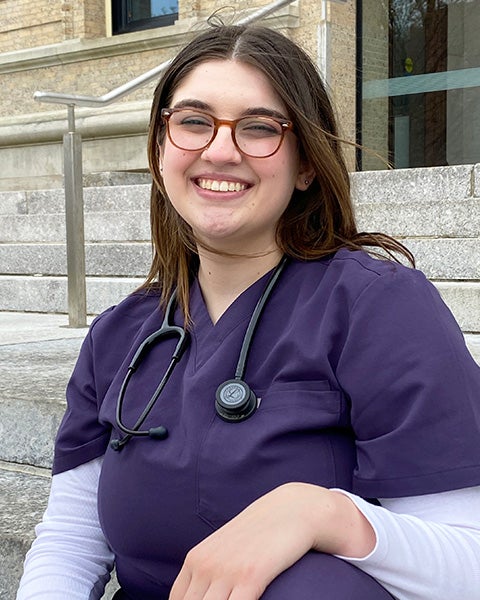
Gianna Branco (G’24), RN, BSN
The program is helping students prepare to serve patients in need. “I certainly want to work with underserved populations in my future practice, especially now that I have more experience in an FQHC practice,” said Gianna Branco (G’24), RN, BSN, a student in the women’s Health Nurse Practitioner Program who is working at Coos County Family Health Center, an FQHC in Berlin, New Hampshire.
Branco’s experience isn’t unusual, according to Lois Wessel, DNP, FNP-BC, associate professor in the School of Nursing.
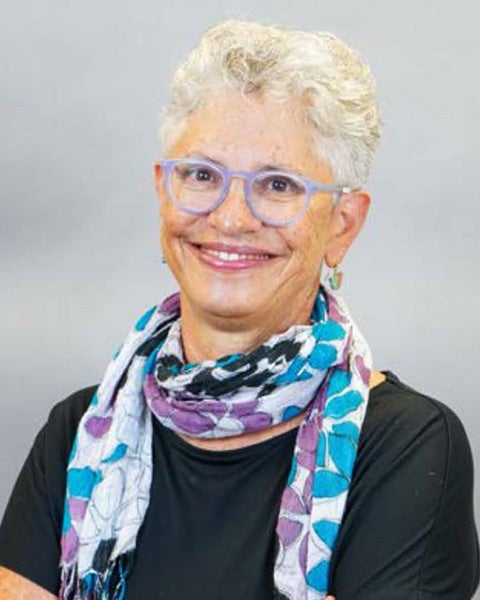
Lois Wessel, DNP, FNP-BC
“Many of our students have chosen to work in community health centers and other community-based organizations upon graduation, citing their experiences as AHEC Scholars as a decisive factor in choosing to work in the community,” Wessel said.
“The School of Nursing values community health experiences, which allow our students to gain understanding of how language, culture, literacy, housing and other social determinants of health directly affect patients,” Wessel added. “Exposure to the roles of a broad health care team help our students learn how team-based care benefits the patients and the community.”
Diverse Patient Populations
Through her AHEC rotation at Watts Health Center in Los Angeles, Briana Distan (G’24) met patients with conditions she hadn’t seen before in a clinical setting with kind and supportive colleagues.
“Selflessness was a theme there and you can tell everyone was there for the right reasons, because the job was not at all easy and their resources were limited,” said Distan, a student in the certified Nurse Midwife/Women’s Health Nurse Practitioner Program. “But patience, joy and a positive, welcoming attitude was abundant.”
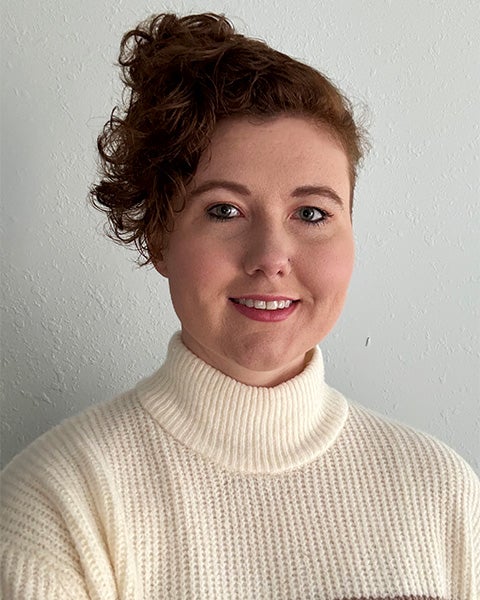
Lindsey Ingram (G’24)
At Crusader Community Health in northern Illinois, Lindsey Ingram (G’24), a student in the Women’s Health Nurse Practitioner Program, also worked with patients from diverse backgrounds. “We see a lot of patients from disadvantaged backgrounds, many non-English speaking patients, and different cultural backgrounds,” she said.
“In the future, I will definitely use the experience and skills I gained here and apply them to my practice,” Ingram added. “It makes me a better provider and more able to understand patients’ needs.”
Learning About Language Barriers
As an AHEC Scholar, Forsythe worked with a midwife at Access: Des Plaines Valley Health Center, an FQHC in suburban Chicago that serves many Spanish-speaking patients. As a result, she learned how to communicate in a concise way with patients through an interpreter.
“I think the biggest thing was realizing how much more time it takes to do that and changing how you communicate,” Forsythe said. “I needed to be really succinct with what I was saying and to cut out jargon.”
“My next clinical rotation is in Indiana, and a majority of the patients are English speaking. So if I had just been there and not the FQHC, I would not have realized how helpful it is to have that Spanish training,” she added. ”I would love to continue working with that population when I go back to the Chicago area, but I need to work more on my Spanish.”
An Opportunity to Learn and Grow
Distan strongly encouraged other students to participate in the AHEC Scholars program.
“Clinical placement is a huge challenge for advanced practice students, especially when in a remote program,” Distan said. “So, if given the chance, don’t let it pass you by. It may be the only time in your career that you serve this population, and the perspective you will gain is invaluable.”
Being an AHEC Scholar also gives students context for their coursework in the School of Nursing. “It has also made me reflect more on the work that has been assigned for my courses, and that they really are preparing me to care for these populations,” Branco said.
Bulik added, “I think this opportunity really enhanced my clinical education at Georgetown and was an opportunity to really dive into health equity topics that are so important today.”
“I would encourage other students to apply, because it’s not only a good learning opportunity but also a chance to learn from different communities, grow as an individual and provide much-needed care,” Ingram said. “Any student can gain valuable experience at an FQHC, and your contribution will be appreciated by the community.”
Kat Zambon
GUMC Communications

